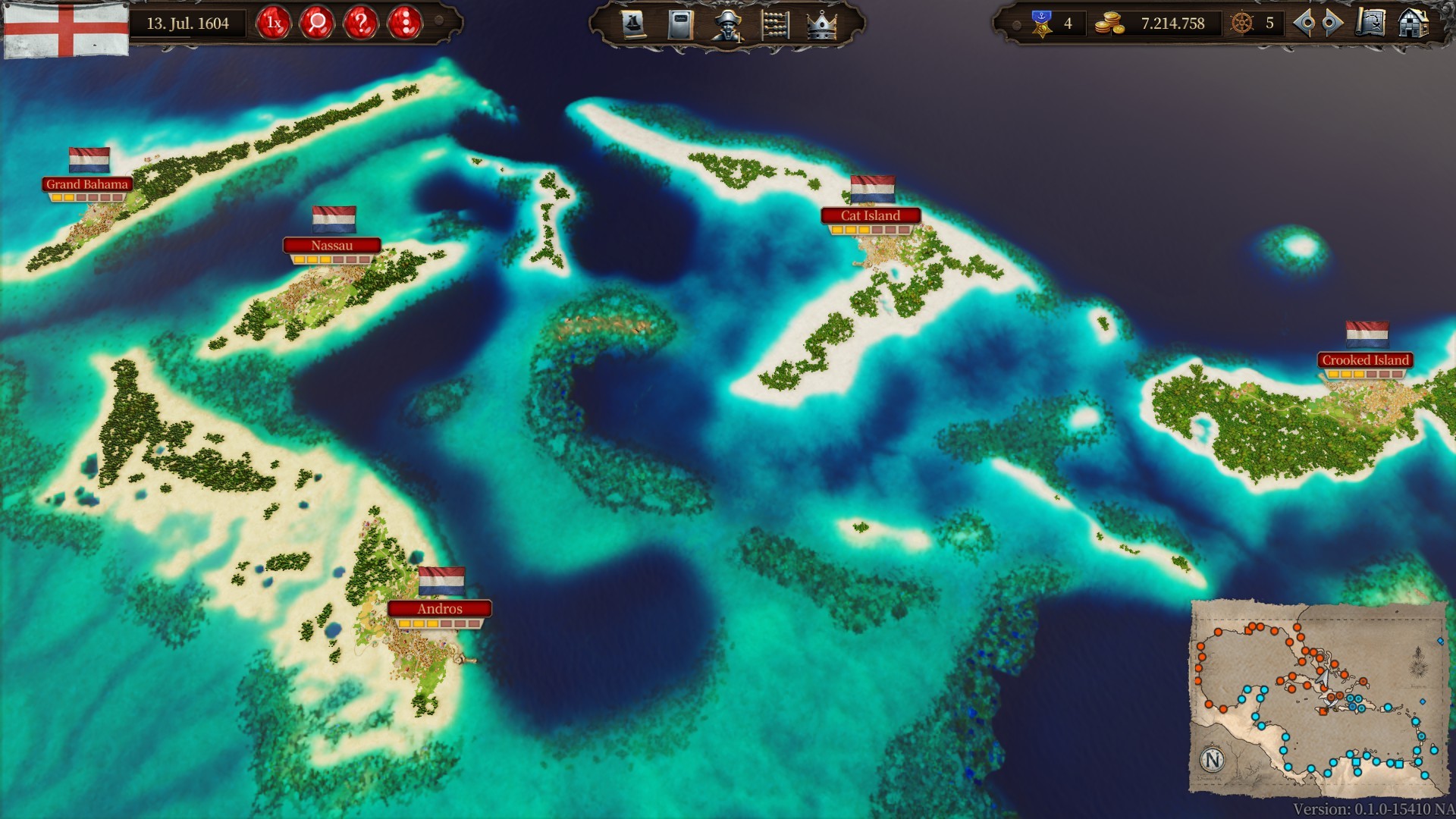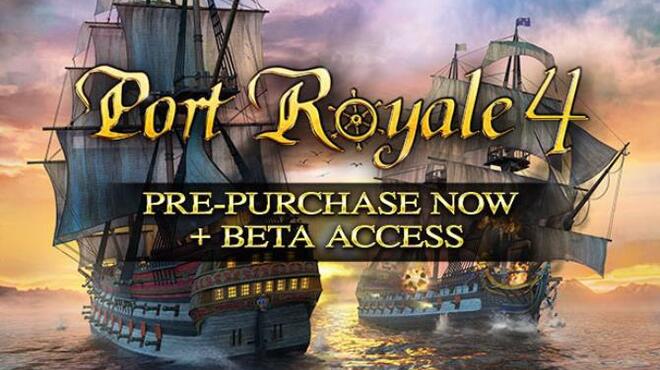

It also allows you to buy and sell the 30+ commodities in the game based on priority, amount in port already and so on, enabling that low-level fine-tuning that I mentioned earlier. Port Royale 4 does try to help - it does use a handy screen for planning trade routes, and this planning tool shows you what the port you are currently managing produces. It won’t, because in all likelihood, you’ll need to fine-tune what your fleets buy and sell to a very low level of detail in order for them to turn a profit, which is something that the tutorial covers poorly at best. You’ll then expect to see the cash flowing in, but chances are, it won’t. This will involve setting up some trade routes - which is relatively simple - and putting your fleets to work. You’ll be given three small trading fleets and a few sparse messages from your Viceroy about what to do, but if you did complete the tutorials, you will set about putting what you’ve learned to use with gusto. Here, you’ll quickly realise how ill-prepared you are to play the game. If you do get through the tutorials (and I think you should, because you’ll need them as a bare minimum to understand the game) then you’ll likely jump into the Spanish campaign. This lack of spit and polish is pervasive throughout the game, and I experienced a fair few crashes as I went, as well as odd glitches like the music and sound stopping for maybe two or three hours before jumping back into life again for seemingly no good reason.
#Port royale 4 best nation how to#
Finish them and you’ll know how to do things, but you won’t understand how they affect the spreadsheet behind them. What’s worse is that the tutorials demonstrate the mechanics of Port Royale 4, but they almost never land the concept or reason for doing it.


There’s a voiceover from a very stereotypical sea-dog named Sam, and it’s clear that the written text is written in pigeon English and that it doesn’t match what Sam’s (dodgy) voiceover is saying. There are loads of them, ranging apparently for five to twenty minutes in length, and each one deals with some aspect of gameplay, from setting up a trade route to engaging in naval combat. But, I’m also going to ask you now to keep reading, because after all that, I’m going to explain why, in fact, I’ve had a lot fun here.įirstly, let’s talk about general presentation - using Port Royale 4’ s tutorials as an example. I’m going to do a bad thing now (from an editor’s perspective) and tell you to bear with me whilst I talk about everything I dislike about Port Royale 4 up front, and you’re going to think I don’t like it. The problem, of course, with spreadsheets, is that few people know how to use all their features - and that is the biggest problem with Port Royale 4. Effectively, Port Royale 4 is a very complex Excel spreadsheet sat behind a large, bright and relatively attractive representation of the 17th Century Caribbean. Everything else is simply a distraction designed to keep the player engaged and add a welcome change of pace to proceedings. Instead, I really should underline the focus on the trading aspect, which really is the core of Port Royale 4. If all of this is conjuring up an image of the classic Sid Meier’s Pirates, then I’m sorry, that’s not quite the same tone as Port Royale 4. You might also search for treasure or be a “doer of good deeds” such as searching for shipwrecked sailors, or tracking down lost relatives. You can (and almost certainly will) build some form of trading infrastructure to keep your base revenue ticking over, but you may also choose to engage in either piracy or privateering (which are subtly different) in order to bolster your economy, harm the other powers and support your own crown.
#Port royale 4 best nation free#
With the exception of a few specific sections during these campaigns, the player is free to act however they like within the setting. In the sandbox style that Port Royale 4 offers, there’s a lot of scope for how you actually tackle the game. Each of these nations has a campaign that has its own challenges and focus. In Port Royale 4 the player takes on the role of a trader in the Caribbean, representing one of the four major European powers in the region - the Spanish, English, French and Dutch. This is a genre that requires time and focus from players in order to penetrate complex systems and mechanics, and few examples of this kind of game are more opaque than Port Royale 4. Heavy economic simulators are common on PC, but much fewer and further between on console.


 0 kommentar(er)
0 kommentar(er)
